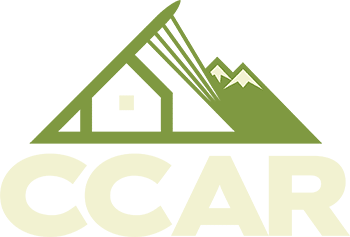Vancouver Issues
The city of Vancouver is Clark County’s largest city with over 190,000 residents. The way the city grows and develops shapes the greater Clark County community. Two recent issues will impact real estate in Vancouver: the city’s climate action policies and the city’s policy on short term rentals.
The city is pursuing an ambitious goal of becoming a carbon net zero city for both citizens and municipal functions by 2040. This is a laudable goal but may produce a variety of unintended consequences. One of the policies would require an all-electric code conversion at point of sale for single family homes in the City of Vancouver. The policy reads: “Adopt an all-electric building reach code that transitions at least 50% of buildings to all-electric at point of sale in 2030 and 90% of existing buildings transitioned to all-electric at point-of-sale by 2040, with exceptions for industrial uses without a suitable alternative.”(Vancouver Climate Action Plan, pg. 22) Not only is the policy poorly worded but it leaves a lot to be answered. Would the buyer be responsible for the cost of transition? Who would be responsible for verification of this all-electric conversion? How will this impact older homes vs. newer homes? How will this impact the cost of housing? These are questions that need to be answered before any policy is adopted. In this current form the Clark County Association of REALTORS® is not supportive of the city’s all-electric point of sale conversion policy.
This policy would represent one more hurdle for our members and clients to go through during a transaction. Some clients may not want all electric appliances and may not be able to afford the cost of conversion. Moreover, it seems like a poor way to welcome a new home buyer to the community, especially with the increased costs associated before closing. Our association would like to see a voluntary incentive program instituted first. The city could begin a property tax credit program to incentivize homeowners to transition to all electric on their own. We aim to protect our members from government overreach, especially when it impacts transactions in the free market.
Secondly, the city aims to regulate short term rentals. Currently, the city only has a bed and breakfast code which doesn’t apply to the modern short term rental market. The city will be crafting a short-term rental policy. Short-term rentals offer a flexible way to earn income that helps some operators pay the mortgage, stay in place, enjoy retirement, and build generational wealth. For guests’ short-term rentals offer an affordable, unique, private, and authentic lodging option for groups big and small, something that traditional lodging options cannot accommodate. Our association will keep our members informed as this policy develops.
Down Payment Assistance Program
Finally, the cost associated with homeownership keep rising. The median home price in Clark County in June of 2022 was $529,400. Interest rates, down payment size, loan duration, and market conditions all dictate what type of home a buyer can purchase. Sometimes the biggest hurdle, especially for lower income buyers is the down payment. Most folks don’t have $105,000 laying around for a 20% down payment for a median priced home. The Clark County Council hopes to use ARPA (American Rescue Plan Act) funding to establish Clark County’s own down payment assistance program in collaboration with the State’s Housing Finance Commission. The county hopes to use $2,000,000 in ARPA funding to kick start the program. Our association supports this funding proposal and CCAR’s government affairs director Justin Wood testified in support of the establishment of the program and associated funding. Everyone should have the opportunity to own a home and build generational wealth. The down payment assistance program is one step further to achieving this goal!
